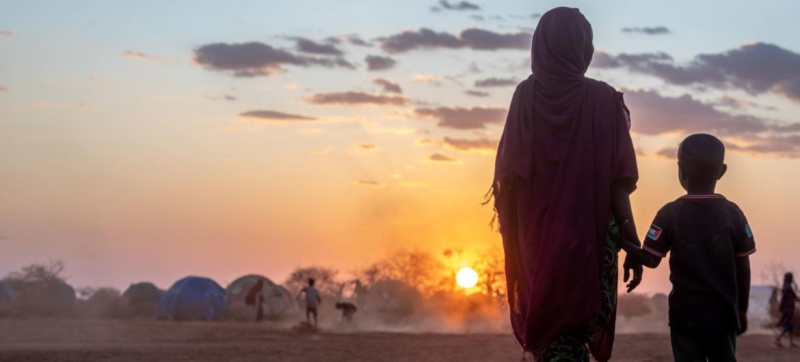
A mother and child in a camp for displaced people in Ethiopia. UN calls for $18.5 million to prepare for monkeypox ‘surge’ Health
The spread of monkeypox across eastern and southern Africa has increased the risk of infection for migrants who need “critical” medical care and other support ahead of an “expected surge” of cases, the International Organization for Migration (IOM) said on Wednesday, calling for $18.5 million to fund the response.
According to IOM, migrants and other populations forced to flee their homes due to natural emergencies and conflict are at greater risk of infection due to poor living conditions and the barriers they face in seeking care.
“The spread of monkeypox in East Africa, the Horn of Africa and the south of the continent is of grave concern,” said Amy Pope, IOM Director-General. “We must act quickly to protect those most at risk and mitigate the broader impact of this outbreak in the region.”
Migration Hub
The Horn of Africa, East and Southern Africa, hosts 12.2 million international migrants – almost half of all in Africa. Six of the 12 African countries reporting monkeypox outbreaks as of early August are in these regions, according to the World Health Organization (WHO). New cases have been reported in previously unaffected Kenya, Burundi, Rwanda and Uganda.
IOM’s appeal for funding for the response in 13 countries – Burundi, the Democratic Republic of Congo, Eswatini, Kenya, Malawi, Mozambique, Rwanda, South Africa, South Sudan, Tanzania, Uganda, Zambia and Zimbabwe – aims to support infection prevention, control and response efforts, particularly at border crossings.
International health threat people
Last week, the UN World Health Organization (WHO) declared monkeypox a public health emergency of international concern. The decision was made in response to the rapid spread of a new strain of the disease, known as clade 1b, with the current outbreak centered in the eastern Democratic Republic of Congo.
Clade 1b is primarily transmitted sexually, although the WHO said on Tuesday that more research is needed into other potential routes of transmission, such as bedding used by infected people.
The latest WHO figures indicate more than 15,000 suspected cases in the DRC, including 537 deaths. The total number of cases of monkeypox in the world is more than 100 thousand.
The disease is known to be transmitted from animals to humans and is spread through close contact with infected people or animals by airborne droplets, blood and body fluids. Symptoms include fever, rash, ulcers on the body, headaches, muscle pain, sore throat and back pain, and swollen lymph nodes.
